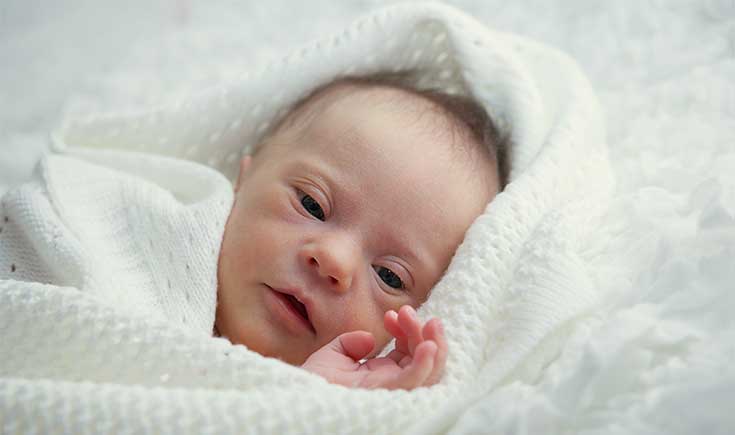

Prenatal testing is offered routinely to most women in Australia. However, it is your choice whether or not to have it, so it’s important to take the time to ensure you have understood the tests, the limitations, and the conditions that are being tested for. Prenatal tests are divided into two types: screening tests and diagnostic tests. Screening tests are used to identify the likelihood of your baby having Down Syndrome, whereas diagnostic tests provide a definitive diagnosis of Down Syndrome based on genetic testing of cells from the baby.
Down Syndrome diagnosis – What to expect
If you have chosen to undertake diagnostic testing, and it reveals Down Syndrome, you will usually be offered a choice about continuing or terminating your pregnancy. It’s important to take the time to carefully consider all of the available information about Down Syndrome and your options.
Making a decision
Receiving a prenatal diagnosis can affect couples and family members in different ways at different times throughout the pregnancy. If you need emotional support, or you feel conflicted and having difficulty making a decision, you can reach out for support from an understanding friend or family member, a support group, or a professional such as a psychologist, genetic counsellor, or social worker.
Genetic counsellors can discuss the results of a Down Syndrome diagnosis with you in regards to medical, psychological, and reproductive implications. They can also provide support while you consider the options available to you, which are: continuing with the pregnancy, termination, adoption, or permanent care placements.
Your local Down Syndrome organisation can provide up-to-date information and support. They’re highly experienced in providing balanced, non-directive information, and will support you during the different stages of the decision-making process. They can also put you in touch with a family who has a child with Down Syndrome. This can be a helpful opportunity to learn about the day-to-day experiences of families, as well as about people with Down Syndrome living meaningful lives.
There are also online support groups available where you can connect with other women with a prenatal diagnosis or a high probability screening result, and mothers of children with Down Syndrome.
What is Down Syndrome?
Down Syndrome is a genetic condition, and not an illness or a disease. It is caused when there is an extra chromosome in their cells, and occurs at conception. It has nothing to do with anything you or the father have done before or during pregnancy. It almost always occurs randomly across all ethnic and social groups. There is an increased chance of having a child with Down Syndrome with increased maternal age, but it can occur at any age.
What is the outlook for a person with Down Syndrome?
According to Down Syndrome Australia, most people with Down Syndrome lead happy and healthy lives. They go to school, get jobs, participate in sport, and contribute to their communities in many different ways.
From a health perspective, people with Down Syndrome have:
- Some level of intellectual disability
- Some delay in development, which may include speech and motor skills
- Some characteristic physical features, including a recognisable facial appearance and short stature
- Some health concerns, which may include: vision and hearing problems, congenital heart condition, increased risk of leukaemia, thyroid problems, respiratory infections, gastrointestinal issues
Not all people will experience these health concerns, and some may not have any. In many cases, these conditions are treatable.
First feelings when you receive the diagnosis
All parents react differently to the news that their child has, or may have, Down Syndrome. Common feelings expressed by parents are shock, a feeling of disbelief or sorrow, feelings of protectiveness, feelings of inadequacy and embarrassment, anger and guilt. You might not have any of these feelings, but if you do, you may find it helpful to know that others have felt the same. Whatever you are feeling right now is normal. It is normal to have questions, concerns, and worries, and it’s equally normal not to. Take this one step at a time.
Go to Down Syndrome Australia to read their guide for expectant parents, in which they address some of the common misconceptions, provide some ideas to assist you when you’re ready to start talking with family and friends about the diagnosis, plus all the support and funding that’s available, and any information and resources near you.























